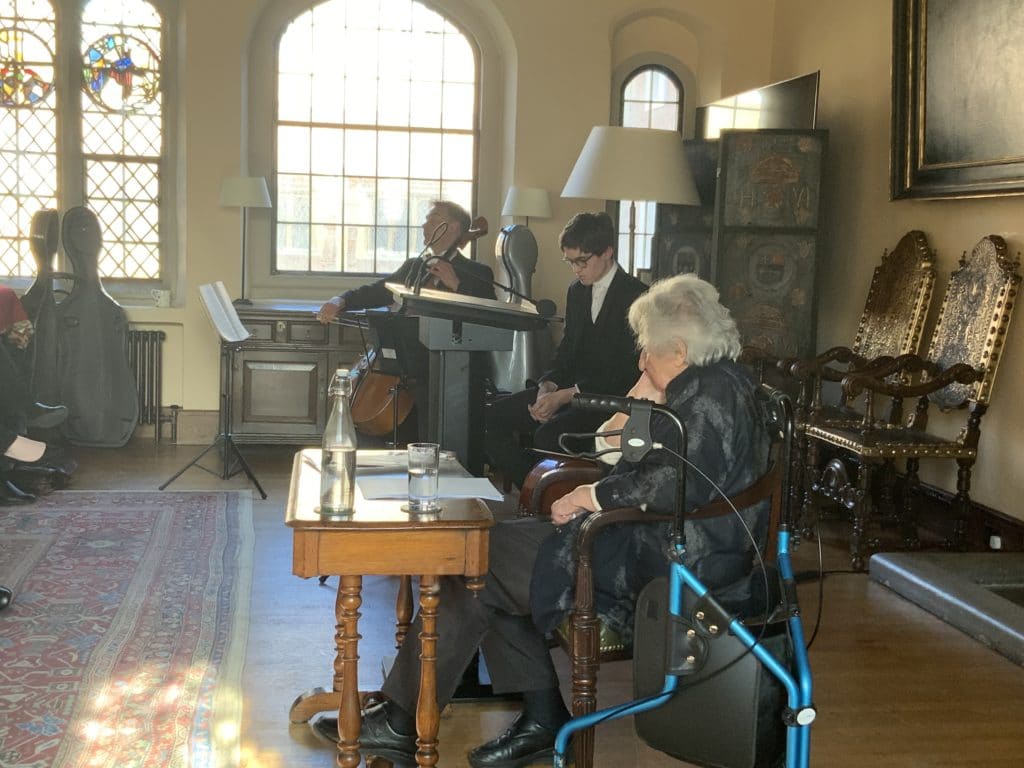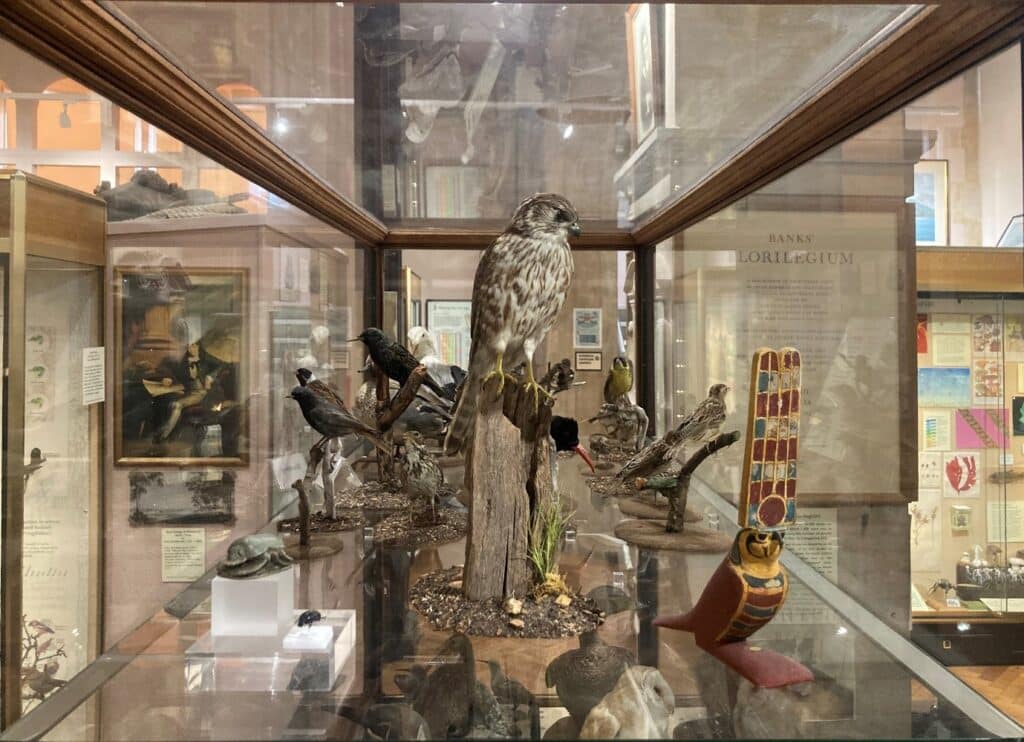The Press Office’s Music Correspondent James M tells us about last week’s special event.
It was a quiet afternoon. The blazing May sun shone overhead and the queue was long to hear the famous Anita Lasker-Wallfisch tell her life story.
When I walked into the Election Hall, the venue was packed with pupils, teachers and members of the Eton community. Anita Lasker-Wallfisch, 96 years old, is a distinguished musician and the last surviving member of the Women’s Orchestra of Auschwitz.
She spoke about her happy childhood in Breslau (then Germany) with sisters and parents. Her father was a lawyer, her mother a violinist, and she remembered that in her family there was ‘no particular emphasis on being Jewish’.
Influenced by her mother’s love of music, she learned to play the cello and life was seemingly normal, until her first experience of anti-Semitism. This occurred at school when she was just eight years old. She was about to wipe the blackboard when one child said, ‘don’t give the Jew the sponge’, and children began to spit at her in the street and called her a ‘dirty Jew’.
Mrs Lasker-Wallfisch revealed that her parents ‘were deported and sent away to the East’. She never saw them again. Determined to resist, she helped forge documents for French Prisoners of War. Eventually, she tried to escape herself with forged papers, but she was caught by the Gestapo, arrested and imprisoned.
Indicted on three counts of ‘forgery, helping the enemy and attempted escape’, she explained that going to prison actually helped her as it postponed her arrival at a concentration camp. When she was eventually transported to Auschwitz in December 1943, it was thanks to her musical abilities that she survived.
She became a member of the camp’s orchestra, who were tasked with playing every morning and every evening, during roll call, as well as on demand by guards.
As the Russians advanced, survivors were moved to Bergen-Belsen and not long afterwards she was ‘miraculously liberated’ by the British Army in April 1945.
Anita Lasker-Wallfisch’s story is extraordinary and inspirational, yet one that no one should have to tell. It was a story that concluded with the request for ‘everyone to respect each other simply as members of the human race’.
Her talk was followed by two pieces of music, played delicately as a mark of respect to her venerable career as a cellist.
Jewish Song by Ernest Bloch was played by Year 12 musician Rudyard C, and Mr Silvera, Head of Strings, played the Sarabande from Bach’s Cello Suite No. 5, which provided a solemn space for reflection, followed by the more optimistic and peaceful Prelude from Cello Suite No.1.
The audience instinctively created a space for silence and reflection afterwards, a tribute to an incredible musician and storyteller.




